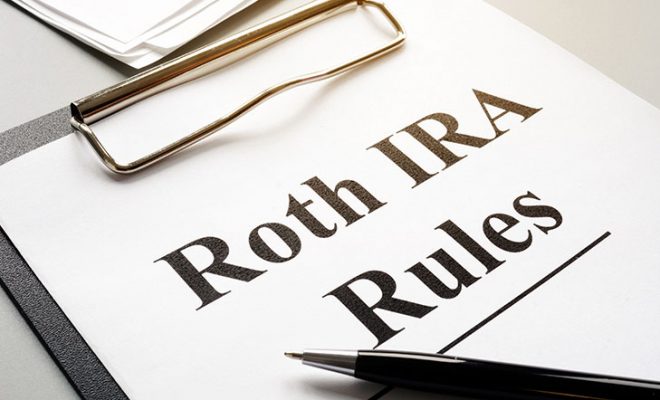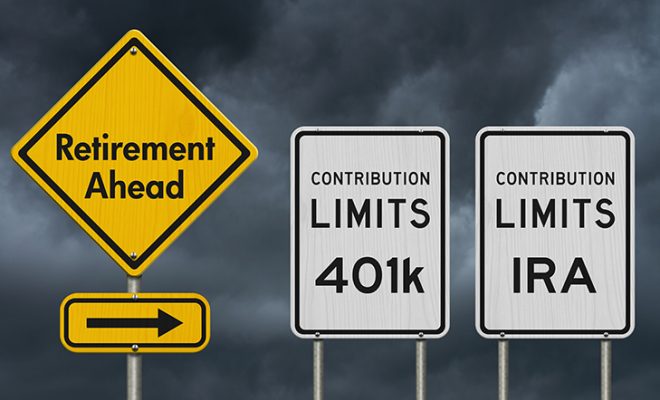The Confusing 5-Year Roth IRA Rule Explained

The Roth Individual Retirement Account is a popular retirement plan for retirement savings in the United States. Established in 1997, Roth IRA serves millions of American investors and helps them save for their golden years. Its major benefit is that it offers tax-free withdrawals to employees post-retirement.
A lot of investors convert their traditional IRAs and 401(k)s to Roth IRAs. But, before you consider doing so, it’s important to understand the Roth IRA 5-year rule and other restrictions that govern Roth IRAs. If you wish to learn about the Roth IRA 5-year rule in detail, its exceptions and the ensuing penalties and taxes that you may incur if you fail to comply with the rule, consult with a professional financial advisor who can advise you on the same.
In this article, we will discuss the Roth IRA conversion 5-year rule, so you know what to expect when you put your savings in a Roth IRA account.
What is the Roth IRA 5-year rule?
The Roth IRA five-year rule has the following conditions:
- As per the Roth IRA 5-year rule, you must wait for at least 5 years (after opening the account) if you plan to withdraw money from your Roth account. These restrictions apply only to the earnings from investments and not your initial contributions to the account.
- In case you make early withdrawals from the account, taxes and penalties will be applicable on the withdrawals.
The 5-year period begins as soon as you make the first contribution to the account. However, specific rules apply to withdrawals even after 5 tax years. For instance, if you withdraw any money from the Roth IRA before attaining the age of 59.5, you will have to pay taxes on such withdrawals.
Therefore, if you want to make tax-free withdrawals from the account, you must adhere to both the 5-year rule and the age limit rule. Suppose you open a Roth IRA account at the age of 58; you will not be able to make tax-free withdrawals at 59.5. This is because a full 5 years have not passed since the opening of the account.
The Roth IRA 5-year rule follows the tax year system (which runs from 1st January to 31st December).
What are the different aspects of the 5-year rule?
There are several aspects of the Roth IRA 5-year rule. Before putting your retirement savings in a Roth account, you must know the following:
1. The 10% penalty rule
According to the 10% penalty rule, no penalties will be imposed on the contributions if at least 5 tax years have passed since the principal conversion. The rule applies to each of your IRA conversions as well. Hence, you need to keep track of the amount and number of principal conversions yearly.
However, the 10% penalty rule is not applicable on the account owner if he makes a distribution before reaching 59.5 years of age. For instance, if A converts his traditional IRA to Roth IRA at 46 and needs the money from his Roth account at 52, the 10% penalty will not be levied. This is because more than 5-tax years have passed since the Roth IRA contributions began. However, A will have to pay an income tax on the distribution of earnings as he is under 59.5 years of age.
2. The inherited Roth IRA rule
If you have inherited a Roth IRA from someone, the 5-year rule will still apply to the account. Additionally, it is important to check the dates of initial contribution and any other conversions to avoid tax payments.
Furthermore, the SECURE Act will be applicable on the inheritor of the Roth IRA account if the beneficiary is not the spouse of the owner of the Roth IRA. According to the SECURE Act, if the inheritance is passed to someone other than the spouse, they will have to withdraw all the money from the account within the next ten years. However, if you are the account holder’s spouse, you can time your withdrawals over the years as per your wishes.
3. The Roth IRA divorce 5-year rule
A divorce can have a significant impact on your retirement planning and financial health. A divorce may affect your Roth IRA account if:
- According to the divorce decree, you need to transfer some funds to your account
- You are planning to withdraw from the account before or after the divorce
Roth IRAs in certain conditions are considered marital properties, and the division of such accounts is governed by the state where the owners live. For instance, if you and your spouse are a part of a community property state, the Roth IRA assets will be divided equally among the members. However, if you are a part of an equitable distribution state, the division of the asset will be divided based on fairness and the properties held by both individuals. The division of the Roth IRA account can be decided based on negotiations between the parties involved (however, the judge handling the divorce takes the final call).
You can continue contributing to the Roth IRA even after the divorce is finalized. However, your and your partner’s income level will decide who will continue to make the contributions.
Exceptions to the Roth IRA 5-year rule
The Roth IRA 5-year rule applies to the earnings from investments. If you want to withdraw your initial contributions that do not include any investment earnings, you can do so without hassle. However, you must hold your contributions for at least 5 years to avoid paying any taxes or a penalty in case of early withdrawals.
However, there are certain exceptions to this rule. For instance, if you want to pay a down payment for your first house, you can withdraw up to $10,000 from the account without having to pay any penalty. You can also use the money from the Roth IRA to pay your health insurance policy premiums if you have lost your job. Additionally, some exceptions are in place for people affected by a permanent disability.
Consequences of breaking the Roth IRA 5-year rule
You may face certain consequences if you don’t adhere to the Roth IRA 5-year rule.
First, if you withdraw money from your Roth account before 5 tax years have passed, you will have to pay applicable taxes and an early withdrawal penalty. The authorities will decide the penalty amount based on age, annual income, the duration of your account ownership, etc.
If you are under the age of 59.5 and have had the account for less than 5 years, you may have to pay a 10% penalty and income taxes on the earnings that are distributed from the account. If you are above 59.5 years old and have not had the account for more than 5 years, there will be no penalty on the earnings; nevertheless, you will be liable to pay the ensuing applicable taxes on the same.
To summarize
The Roth IRA 5-year rule is an important rule governing the Roth IRAs. To avoid paying any taxes or penalties, it is advised that you adhere to the rules. However, if you are facing an emergency and need the money urgently, try and see if you qualify for any of the exceptions that come under the Roth IRA 5-year rule. Seek out counsel from a professional who can advise you and clear any doubts that you may have about the Roth IRA 5-year rule.
Use the free advisor match tool to match with experienced and certified financial advisors who will be able to guide and advise you effectively on the Roth IRA five-year rule, its exceptions and the ensuing penalties if you fail to comply with the rule. Give us basic details about yourself, and the match service will connect you with 1-3 professional financial fiduciaries that may be suited to help you.










